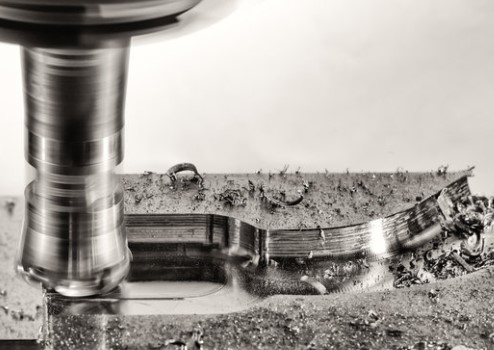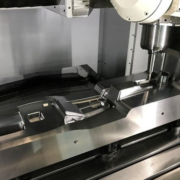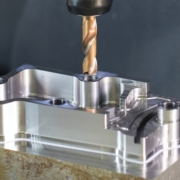The Importance Of Rapid CNC Machining In Industry
In the development of numerical controls, it is the needs of the end users that ultimately define the trends. The extreme pressure to which they are subjected to maximize productivity and flexibility in all their operations reverts to the corresponding demands on machine and control manufacturers. In a study conducted last year in Germany, a wide range of industry areas were examined and assessed, including that of CNC machine. The findings revealed that the study group considered reliability the most important factor in assessing the quality of CNC machined parts, followed by service issues such as prompt supply of spare parts and fast service response times. The results of the study speak for themselves: investors and end users attach great importance to the reliability of their machines, which is the basis for maximum productivity in manufacturing processes.
These results are broadly consistent with those of surveys conducted by controls manufacturer GE Fanuc, for which availability is a top priority. The world market leader in CNC machining products ensures that the reliability of its control systems is not affected by poor design of new developments. Nothing hurts productivity more

What is a CNC machine?
Also known as a CNC machining center, in short, they are automated machine tools, controlled by a computer. They are tools capable of performing multiple operations on a part, using rotating tools with multiple cutting edges and with minimal worker intervention during the machining process.
CNC machines are used in modern industry, not only to reduce production costs but also to save time and improve work precision, as manufacturing centers are very useful for complex prototype machining. There are two types of machines, vertical and horizontal, classification given based on the position of the spindle motor. There are also machines of different sizes to make parts, such as 3, 4 and 5 axis. The larger the number of shafts, companies can produce comparatively faster and more complex parts. In addition to improving productivity and a better finished job, CNC machines offer a wide range of benefits; Here we bring you a list of the 6 biggest advantages of machines.
The main advantages of CNC machines
- Improved accuracy
- Security
- High process precision
- Waste reduction
- Reduction of worker involvement
- Execution of complex processes
Technological advancements are not only apparent at the higher end of the CNC control range. The basic range, intended for simpler machine tools, also has considerable improvements. The compact structure of these CNCs is the one that most favors the normally compact design of these machines. GE Fanuc’s 0i-C Series is integrated into the LCD screen, reducing the overall depth to approximately 7 cm.
The CNC can communicate with a PC through a card inserted in the PCMCIA slot. In addition, memory cards in the PCMCIA slot allow for fast upload and download of CNC programs, parameters, and setup data for tool compensation. The data of the alarms and operation histories can be viewed in the CNC and easily transferred through this type of memory cards. Efficiency and overall size are not, however, the only factors that determine the suitability of a control unit. The ease of use and maintenance of the installation are increasingly important aspects for both machine manufacturers and end users.
How does CNC work?
The CNC must facilitate the machine tool manufacturer to adapt the installation to its needs and, finally, to the needs of the end user. This mainly concerns the user interface. While the standard interface is usually sufficient for turning and milling work on a single machine, a special user guidance system is required for grinding and erosion operations. In these cases, machine tool builders often develop their own interface to offer end users greater technology-based ease of use. Control manufacturers, for their part, must provide their customers with the tools necessary to enable them to meet the user’s system specifications. PC technology offers the best options for this.
The solution from the world market leader in CNC, GE Fanuc, called ‘Open CNC’, incorporates an additional PC (Windows 2000 / XP) or an integrated system (without hard disk) and Windows CE. For the design of the interface, GE Fanuc tools can be used, or others available on the market. The maximum security in the data transfer through this interface is guaranteed by means of the physical connection through fiber optic cables and by using a software protocol for the identification and correction of faults. In terms of reliability, the advantage that this solution presents over the single processor solution is that the machining preserves its programmed cycle times regardless of the PC workload.


